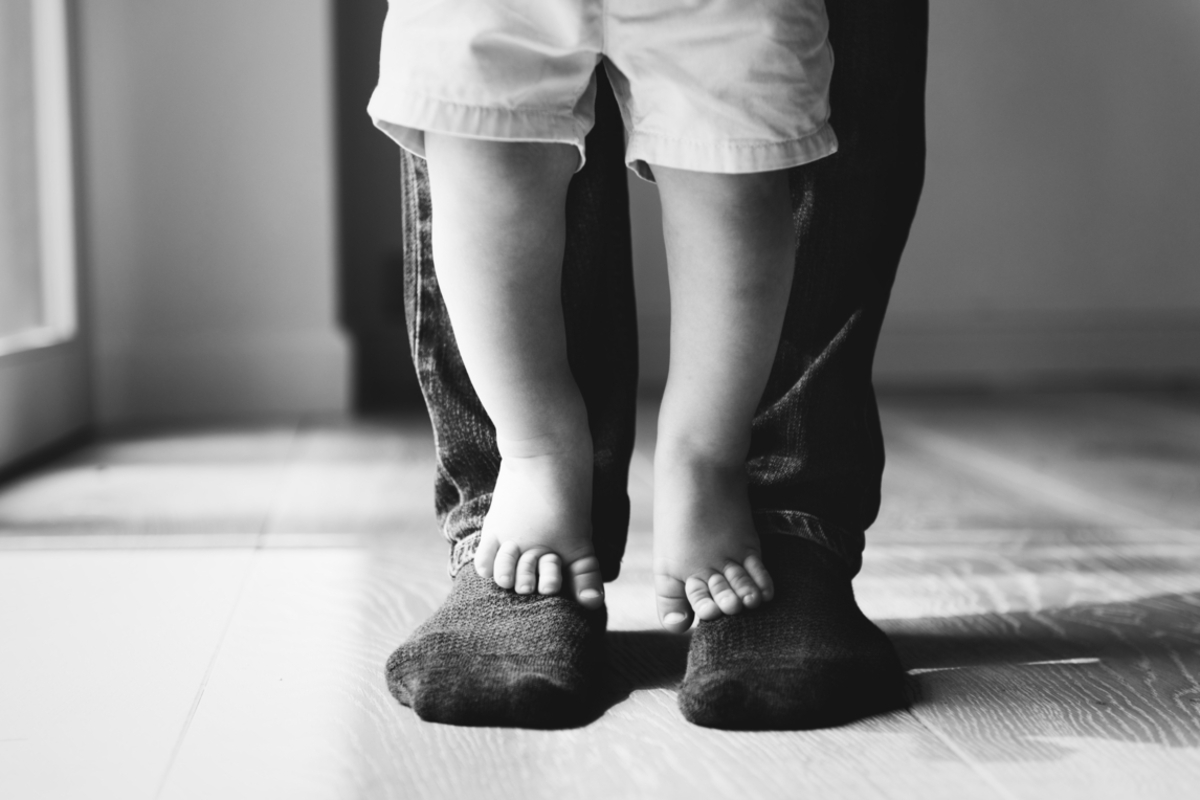Post-traumatic stress disorder fundamentally alters the way in which we see the world — and with that, also inevitably our relationship with it. We may not even realize the extent to which everything becomes distorted while we're living through the darkest depths of this disorder, but it colors everything.

PTSD impacts your whole life — it's no surprise that it affects your ability to parent, too
PTSD manifests slightly differently for everyone who suffers from it. For me, as for many others, it involved being startled by innocent stimuli and lashing out in anger in response to things I wasn't even able to consciously process half the time. It involved being plagued by nightmares and intrusive memories, feeling deeply worthless, and distrusting the world in a way others would easily label as paranoid.
My PTSD involved going to great lengths to avoid being touched by the trauma. That didn't just mean staying away from people, places, and circumstances that were triggering, but also settling into a kind of emotional numbness that let only anger and fear through. Other emotions — negative ones like pain and sadness, but also positive ones like joy or contentment — didn't exist.
I, myself, became a parent while still very much engulfed in the fog of PTSD, and it doesn't take a genius to see that emotional numbness, chronic anger, being quick to startle, and also having a hard time with large crowds of people, doesn't exactly set a person up to be a stellar parent.
I was a fiercely protective mother. That part, the instinct to keep my children safe from the rest of the world, wasn't broken. My feelings were broken, though, and whether my PTSD-tainted perceptions of the world were a normal reaction to abnormal circumstances or deeply flawed, I do know they weren't a healthy lens through which to raise small children. I was no fun. I wasn't the kind of mother people strive to emulate. The ability to feel feelings and manage them in a healthy way is an essential part of being a decent parent, after all, and I lacked both those qualities.
That's why I went to therapy — exactly so that I could be the kind of parent my children deserved. I won't say that I'm completely free of PTSD symptoms now, years on, but I do feel both the good and the bad, and have fortunately regained that crucial ability to connect with other people in a healthy way.
What time alone couldn't "fix", therapy was indeed able to accomplish, and I do have a very strong relationship with my children today. I am not at all sure that this would have been possible if I hadn't sought treatment. It's why I'd encourage any parent who has been diagnosed with PTSD already, and any parent who has suffered trauma and believes they have post-traumatic stress disorder, to seek treatment, too.
Research: Emotional numbing sets people with PTSD up for poor relationships with their children
Research has found that emotional numbness has the biggest negative impact on the quality of the relationships people with PTSD — veterans and civilians alike — have with their children. This proved to be true even after other factors, like financial worries, work stress, and marital problems were controlled for. This is hardly surprising, given that emotional numbness leads to emotional unavailability and a certain level of detachment almost by definition.
Re-experiencing symptoms, such as nightmares, intrusive memories, and flashbacks, and hyper-arousal symptoms like hyper-vigilance ("always being on guard") and an exaggerated startle response have also been found to reduce the quality of parent-child relationships, however. This is self-explanatory, really.
What factors allow people with PTSD to be better parents?
It won't come as a surprise that research has also demonstrated that PTSD sufferers who have supportive relationships with their families tend to have better relationships with their children, too. If your partner and family care about you and understand your needs, you're more likely to be able to be a responsive parent who enjoys their children than if the most important adults in your life argue with you, make you feel tense or unsafe, and make demands you can't meet.
People with post-traumatic stress disorder who don't suffer financial stress and have jobs they feel they can manage reasonably well tend to be better parents as well, as do those who have fewer children.
What can you do if you have PTSD as a parent?
Seek treatment if it is available to you. Depending on your situation, this may mean talk therapy, medications (both antidepressants and medications to help you sleep better can help), or both. Approaching a family doctor, psychiatrist, or psychologist can be intimidating, and not every individual healtcare provider will be a good fit for you, but if you get get the right treatment plan started, it can make all the difference.
While I'm not comfortable telling people with PTSD who don't have access to treatment for whatever reason what to do, talking to others with PTSD in person and online and journaling about the trauma both helped me. Being honest with myself about where I was and what needs my children and I had led me to conclude that therapy was indispensable, mind you.
What can you do to support someone else who is parenting with PTSD?
Low-conflict settings in which people with PTSD feel understood are best for their mental health, as we've already seen — so try to learn as much about the nature of post-traumatic stress disorder as you can, especially if you are the partner or close relative of someone who is parenting after trauma. Learn about your loved-one's needs and triggers, and help them with childcare if you can.
- American Psychiatric Association. (2013). Diagnostic and statistical manual of mental disorders (5th ed.). Arlington, VA
- Photo courtesy of SteadyHealth


Your thoughts on this